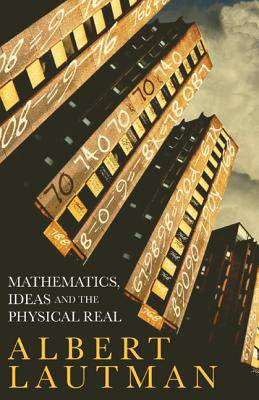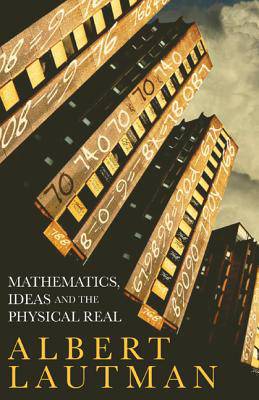
Bedankt voor het vertrouwen het afgelopen jaar! Om jou te bedanken bieden we GRATIS verzending (in België) aan op alles gedurende de hele maand januari.
- Afhalen na 1 uur in een winkel met voorraad
- In januari gratis thuislevering in België
- Ruim aanbod met 7 miljoen producten
Bedankt voor het vertrouwen het afgelopen jaar! Om jou te bedanken bieden we GRATIS verzending (in België) aan op alles gedurende de hele maand januari.
- Afhalen na 1 uur in een winkel met voorraad
- In januari gratis thuislevering in België
- Ruim aanbod met 7 miljoen producten
Zoeken
€ 322,45
+ 644 punten
Uitvoering
Omschrijving
Albert Lautman (1908-1944) was a French philosopher of mathematics whose work played a crucial role in the history of contemporary French philosophy. His ideas have had an enormous influence on key contemporary thinkers including Gilles Deleuze and Alain Badiou, for whom he is a major touchstone in the development of their own engagements with mathematics.
Mathematics, Ideas and the Physical Real presents the first English translation of Lautman's published works between 1933 and his death in 1944. Rather than being preoccupied with the relation of mathematics to logic or with the problems of foundation, which have dominated philosophical reflection on mathematics, Lautman undertakes to develop an understanding of the broader structure of mathematics and its evolution. The two powerful ideas that are constants throughout his work, and which have dominated subsequent developments in mathematics, are the concept of mathematical structure and the idea of the essential unity underlying the apparent multiplicity of mathematical disciplines. This collection of his major writings offers readers a much-needed insight into his influence on the development of mathematics and philosophy.
Mathematics, Ideas and the Physical Real presents the first English translation of Lautman's published works between 1933 and his death in 1944. Rather than being preoccupied with the relation of mathematics to logic or with the problems of foundation, which have dominated philosophical reflection on mathematics, Lautman undertakes to develop an understanding of the broader structure of mathematics and its evolution. The two powerful ideas that are constants throughout his work, and which have dominated subsequent developments in mathematics, are the concept of mathematical structure and the idea of the essential unity underlying the apparent multiplicity of mathematical disciplines. This collection of his major writings offers readers a much-needed insight into his influence on the development of mathematics and philosophy.
Specificaties
Betrokkenen
- Auteur(s):
- Vertaler(s):
- Uitgeverij:
Inhoud
- Aantal bladzijden:
- 352
- Taal:
- Engels
Eigenschappen
- Productcode (EAN):
- 9781441146564
- Verschijningsdatum:
- 4/08/2011
- Uitvoering:
- Hardcover
- Formaat:
- Genaaid
- Afmetingen:
- 137 mm x 203 mm
- Gewicht:
- 430 g

Alleen bij Standaard Boekhandel
+ 644 punten op je klantenkaart van Standaard Boekhandel
Beoordelingen
We publiceren alleen reviews die voldoen aan de voorwaarden voor reviews. Bekijk onze voorwaarden voor reviews.









